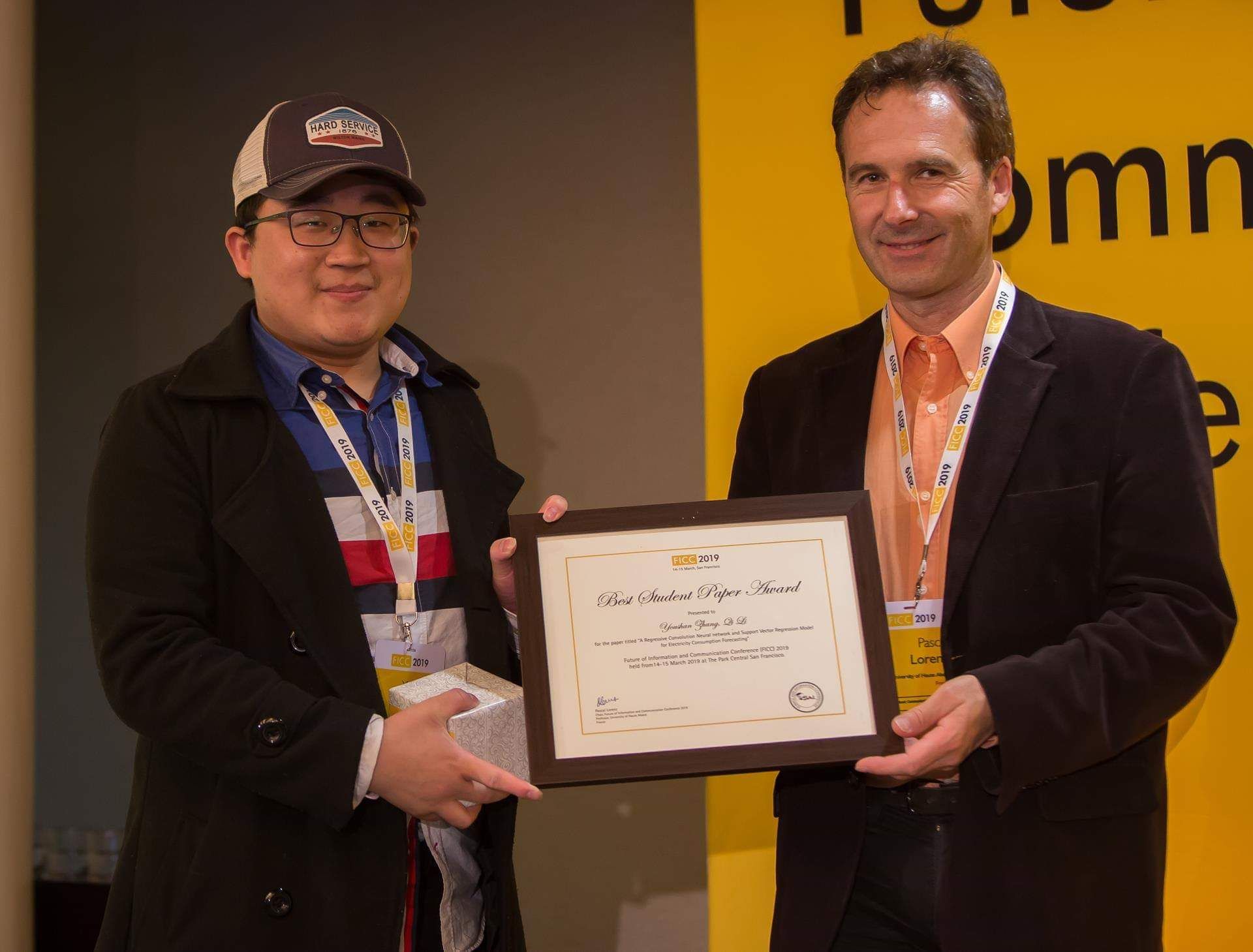Work by computer science doctoral student Youshan Zhang was recognized with a best student paper award at the 2019 Future of Information and Communication Conference (FICC).
Participants from academia and industry gathered at the global conference, held March 14-15 in San Francisco, to present research involving information and communication technologies and their real-world applications.
Zhang’s research interests are in artificial intelligence, including deep neural networks and computer vision. He is advised by Brian Davison, an associate professor of computer science and engineering.
Zhang’s paper, “A Regressive Convolution Neural Network and Support Vector Regression Model for Electricity Consumption Forecasting,” examines two types of models—a regressive Convolution Neural Network (RCNN) model and a Regressive Support Vector Machine (SVR) model—and how accurately they predict electricity consumption when applied separately or in combination.
His results showed that the models forecasted electricity consumption with the highest precision when applied together (RCNN-SVR model).
Zhang says his work can benefit mineral companies by accurately predicting future electricity demands, which would reduce their budget costs. He also says it can support global efforts to conserve energy and reduce consumption.
Zhang feels honored to have attended the conference and received the award.
“It encourages me to keep raising the enthusiasm to propose new deep networks to solve real problems,” Zhang says. “The conference also reminds me to work with peers since they provided me with great inspiration, which can benefit my research. I am excited about interdisciplinary research, collaborating, and working with researchers from related fields.”
—Madison Hoff is a student writer for the P.C. Rossin College of Engineering and Applied Science

